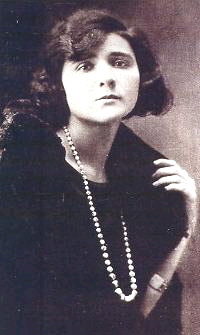Автор: Rolando Galvao.
Translated by John D. Godinho.

FLORBELA ESPANCA (1894 – 1930)
WHEN IT ALL HAPPENED…
1894: Florbela Espanca is born on December 8, in Vila Viзosa. – 1915: She marries Alberto Moutinho. – 1919: Begins studies at the School of Law, in Lisbon. – 1919: Publishes her first work, Livro de Mбgoas (Book of Sorrows). – 1923: Publishes Livro de Soror Saudade (Book of Sister Saudade). 1927: Her brother, Apeles, dies on June 6, causing her profound grief. – 1930: Florbela commits suicide, in the city of Matosinhos. – 1931: Posthumous publication of Charneca em Flor (The Flowering Heath), Reliquiae (Relics) and Juvenilia as well as Dominу Preto (Black Domino) and As Mбscaras do Destino (Mask of Destiny), which are books of short stories. In that same year, there’s a new edition of her first two books. This is the beginning of Florbela’s popularity.
FLORBELA, BEAUTIFUL FLOWER, ROOTS AND BOUGHS
It’s the end of 1894, the night of the 7th to the 8th of December, in Vila Viзosa.
Antуnia da Conceiзгo Lobo begins to feel the first labor pains. Later that night, she gives birth to a girl. The event is not greeted with much joy by the family, so there’s no reason for the customary celebrations. It seems the child was not wanted by any of the parties involved. Her baptismal records indicate that the father was “unknown,” as were her grandparents. She is given the name of Flor Bela de Alma da Conceiзгo. In Portuguese literature, she will be known as Florbela Espanca. She receives the name Espanca from her father, Joгo Maria Espanca, once his identity becomes known. Oddly enough, the priest who baptizes her has the same last name, and so does her godmother.
The child’s mother dies sometime later.
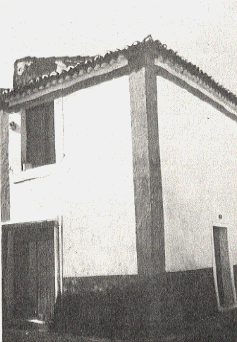
There is no lack of love and affection in Florbela’s early childhood. Her life is not darkened by the needs that afflict many of the children born in similar circumstances. Her father doesn’t withhold any support. She says so herself when, at the age of 10, she writes a birthday poem dedicated to her “dearest beloved Daddy,” saying that Mom takes good care of her and her brother, but “if you die, Daddy, we’ll be three wretched souls.”
She will be treated kindly by her two stepmothers, as indicated in her correspondence.
Florbela starts high-school in Йvora, at a time when very few girls had an inclination to study. She’s a pretty girl, even though she often rejects the description, and her good looks had quite an effect on her male classmates.
The birthday poem is not her first. She has written others before, with words misspelled. They are childish, as might be expected, but they are mature for her age. In a way, they are a sign of what there is to come.
Her precociousness contrasts with a certain maladjustment in the future, when her writings diverge from the tenets of poetry followed by such groups as Orfeu and Presenзa, as well as other tendencies of the so-called “Modernist Movement,” and which are the most important literary references at the time. Florbela seems to have strayed from such principles.
She lets us know that she had started with no financial difficulties at all. She becomes a tutor in French, English, and other subjects. Later, at age 22, she enters the School of Law at the University of Lisbon.
She publishes several poems in newspapers and magazines not necessarily dedicated to poetry, such as Notнcias de Йvora and O Sйculo, as well as in local newspapers.
In 1919, she publishes her first book Livro de Mбgoas (Book of Sorrows), and, in 1923, Livro de Soror Saudade (Book of Sister Saudade),in which she includes much of her previous work.
She makes references to Alentejo and other places related to her place of origin; she glorifies her motherland in some of the poems. But her writing will, above all else, deal with human passion.
She marries three times. From her first husband, Alberto Moutinho, she adopts the last name and uses it in some of her writings, particularly in correspondence. From the third husband, Mбrio Lage, she will take the last name and use it, together with her regular signature, in her translations. As to the second husband, there are no clear references to him in her writings, although she originally dedicates a book to him but ends up publishing it under a different title (Livro de Soror Saudade) and omitting the dedication.
THE FACES OF A PERSONALITY
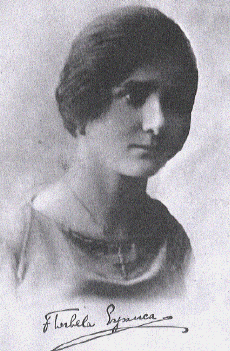
Florbela’s concerns: the soul, love, longing, kisses, verses…
Florbela emerges on the scene free from any social or humanist concerns. That’s how she is described by several scholars who have studied her personality and her work. She is the product of her small bourgeois world, as evidenced by her descriptions of herself throughout her writings.
She shows no interest for politics or social problems. She calls herself a conservative.
In one of her short stories, А Margem de um Soneto (On the Edge of a Sonnet), she gives what is almost a listing of her different personalities. The story is included in the book Dominу Preto (The Black Domino).
She begins by describing a poetess “wearing a black and white velvet dress, who holds out her slender hand, whose nails cast the reflections of jewels…” while informing her visitor that she had finished her “book of poems…with a beautiful sonnet!”
The poetess proceeds to give a reading of the sonnet, “with a look…drowned in dreams” in “a soft and sad voice,” bringing it to a close by describing the “evil of being alone…” and having to put up with “the horrible and cruel misfortune of bearing so many laughing souls within my own soul!…”
The story continues, written in a tone and describing scenes which Florbela frequently considers to be reflections of herself, although here she attributes such characteristics to a fictitious Brazilian female novelist: “she is homely, not at all elegant; intelligent, but having the talent, the graceful spirit and, above all, the charm, of an extraordinary imagination, full of life, passionate and colorful, always changing and displaying amazing vigor.”
Placing her own words in the mind of the character’s husband, Florbela goes on describing “the several souls that belonged to her” and which “she had hid within herself.”
In the novelist, Florbela glimpses a character who is “immaculate, naive, cold and detached, inaccessible and sacred,” of “an unreal beauty,” and “dying, in a state of innocence, with a smile on her face.”
Referring to another imaginary novel, she presents herself as “ardent, sensual, hot with passion, driving men crazy, losing her values…”
Alluding to a third imaginary book, she pictures herself as “skeptical and disillusioned, ironic, disdainful of everything, walking, with indifference, along every path, causing all beautiful things to wither.” She lies “night and day, just for the pleasure of lying” and “madly kisses a mad lover.”
Upon reading Florbela’s poetry, her prose, her letters and other writings, who doesn’t notice her use of similar characteristics being applied to herself a thousand times, some going beyond such descriptions and exagerations?
Before bringing the story to a close, she exalts the quality of being a poetess, a constant element in her work:
“The soul of a poetess is all made of light, like that of the stars: it doesn’t blind the onlooker, it illuminates…”
Who is, really, Florbela?
No one can be defined in one dimension only, with a single set of qualities. As I learned in my youth from my friend Diogo de Sousa, a student of philosophy, every being is a combination of different, and sometimes even opposing, characteristics.
Florbela’s case is particularly interesting because she provides her own definition, constantly and without reservations. To paraphrase Antуnio Josй Saraiva and Oscar Lopes in Histуria da Literatura Portuguesa (History of Portuguese Literature): she stimulates and precedes “the women’s literary emancipation movement” that “will put an end to the frustration, both feminine and masculine, imposed by our oppressive patriarchal traditions…”
As stated by these two scholars, her writings present an impressive “intensity that goes beyond feminine eroticism.” Up to that time, this had been taboo in feminine statements and writings, as it continued to be after Florbela.
In a chapter entitled From Simbolism to Modernism, the same authors list a number of tendencies characterized as “methods of pedagogic exposition” and include Florbela in a group which they call “Other poets.” She is classified as a writer of sonnets with traces of Parnassian aesthetics” and “one of the most notable lyrical personalities.”
Her egocentricity, which does not diminish the beauty of her poetry, is much too evident not to be mentioned by everyone.
She thirsts for glory, says Henrique Lopes de Mendonзa, cited by Carlos Sombrio.
She incessantly insists on the use of a certain group of words in her writings. Above them all is the word “I”, which, one might say, is present in practically all of her poetic pieces. And then there are the widely repeated terms which are reflections of her passion: soul, love, longing (saudade), kisses, verses, poet, and several others, as well as derivatives of such terms.
There aren’t many of her writings that go beyond the characterization of such passion, particularly in her poetry. The exception is found in those that refer to her Alentejo, where she was born.
She does not assume the position of a distant observer, even when she seems to be exactly that, unconcerned with facts, ideas and events.
Her position regarding marriage is rather unexpected. She states several times that she is totally against that institution, even though she married three times. The only excuse she reluctantly gives for herself is that she married for love (!!!).
Among her favorite poets, one finds Antуnio Nobre, Augusto Gil, Guerra Junqueiro, Josй Duro and others who find inspiration in similar fountains. She is also interested in Antero de Quental.
As to her lack of success in publishing her work, after having published two books, she is either unhappy for not finding an editor or she pretends that she is not interested and is, in fact, disdainful of the fact. But her sadness is noticeable.
Some seventy years after her death, some facets of her less than orthodox behavior are still discussed considering the moral principles of her time regarding sex. Some suspicions are reinforced by several of her expressions of emotion that were somewhat excessive, even though not exclusively used by her.
We are reminded of her correspondence with and her references to her brother, Apeles. Her verbal excesses seem to be just that – an immoderate way of expressing her passion. Here, we have an uncommon glorification of a fraternal love that is not out of tune with the way she usually expressed her feelings.
The same thing happens in her correspondence with a certain woman friend. But then, she had never met this friend, in person, and had only seen her picture.
This going beyond the limits in her expressions of love, friendship and affection is constantly present in her work.
In written comments today in the possession of Carlos Sombrio, Fernanda de Castro explains Florbela’s contradictions by saying that “she didn’t know how to live without breaking prejudices, handcuffs, chains – and she didn’t have the courage to break them all.”
Florbela, the poet, cannot be separated from her condition as a woman, or from her passions, her way of being, her life, her contradictions, humbleness and pride, her prejudices, her simultaneous presence and absence, her love affairs and unrequited loves, as explained to me by my young friend Clara Santos, herself a militant Florbela follower.
Her sole concern is herself, her love, her passion…to want and not to want. In addition to a rather uncommon life for the mores of her time – three marriages and two divorces in about fifteen years – this woman-passion relationship plus her enthusiasm in describing herself might have contributed to the ideas that people have about her.
Consider the beginning of one of her best known sonnets:
I want to love, to love heedlessly!
To love for the sake of loving: Here…there…
This one, that other and everyone…
To love! To love! And love no one!
And in the next quatrain,
He who loves someone and says that love’s fire
Can last a lifetime is nothing but a liar!
At that time, Florbela, being a conservative as she says, probably leads people to believe by her mode of living that she will not stray from the then existing social and moral precepts.
FLORBELA, THE WRITER AND THE CULT
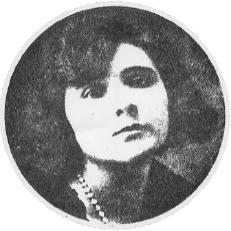
I ask myself why Florbela has become so well-known and why she has been accepted by a public far greater than that of other contemporary writers, who came before and after her, the quality of whose work is, if not superior, at least on the same level as hers and whose interests and character are more universal, with concerns that are capable of appealing to a broader range of sensibilities.
Although her work presents undeniable interest and beauty, it, nevertheless, has surprised some critics by its impact on the reading public when compared with the work of other writers of equal value who are little known or totally unknown outside intellectual circles.
We open the above-mentioned History of Portuguese Literature, count the number of writers mentioned in the same time period as Florbela’s, consider the impartial analysis of their work made by the authors and check the number of such writers who continue hidden in a mist. Even for readers of wide reading experience, many of them are no more than unknown entities.
In his book Os anos vinte em Portugal (The 20s in Portugal), Josй Augusto Franзa, after making an extensive catalog of publications and referring to dozens of writers, describes Florbela as “hidden from everyone’s view,” although he adds that “hers was a case of the most profound creation among the women who published their work in the 20s in Portugal.”
To other critics she is not a star of the same magnitude as some of her contemporaries. She is not up to par, either as to form or as to her concerns. How to explain it, then, that she is considered by many as one of the outstanding figures of the century – and that she is so precisely because of the importance attributed to her work?
Hernвni Cidade will say that it’s due to “the violent contradiction between the concepts of poetry in two periods that are distant from ou near each other.”
In their analysis of her behavior and work, some critics include comments in which one can sense an effort to avoid a relatively harsh judgment.
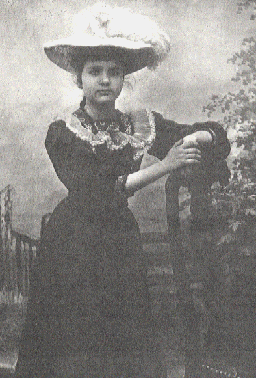
In her long preface to an edition of Diбrio do ъltimo ano (Diary of the Last Year), Natбlia Correia speaks of a “pathetic coquettishness” and describes Florbela’s poetry as “poetry made up with languid touches like a silent screen movie star, heavy on the face powder.” The critic proceeds, with a bit of exaggeration, saying that the writer “stretches out on the chaise longue of her magic spells worthy of a goddess of verses.” Very much in keeping with the principles of minor literary circles. She is an expensive puppy to be cuddled during the five o’clock tea by the ladies who read Modas e Bordados (Fashion and Embroidery) and Portugal Feminino (Portugal for Women), a fact that explains her lack of sensitivity to “the disruptions brought about by the logic of masculine discourse.”
Why, then, such a growth of her fame?
The cult is begun by Florbela, herself.
Read the following poem, one of her most beautiful, as it was sung by a well-known musical group.
To be a poet is to be taller, to be bigger
Than average men! It is to bite as if you’re kissing!
It is to give alms, although you are a beggar,
Like the king of a realm where only pain is missing!
…………………………..
It is to have inside yourself a flaming star,
To have the condor’s mighty claw and wing!
…………………………..
To be hungry and thirsty for the sky!
…………………………..
To condense the world into one lonely cry!
…………………………..
Oh, how often Florbela reminds us that she is a poet! And she does it with such enthusiasm!
I dream I am the chosen Poet,
Who knows all there is to know on Earth,
The one whose inspiration’s pure and perfect,
And captures infinity in a verse!
I dream a verse of mine has all the brightness
To light the whole world! And it will please
Even those who long and die of sadness!
And even wise, unhappy souls it will appease.
Few poets will be so insistent…
We, in no way, discard the beauty of her writings, her manner of expression, and the subject matter of her work.
As we intensify our reading of the work, and without prejudice to its literary quality, we are not surprised by aspects which are, somehow, alien to it. Among them are the portrait the author draws of her life, somewhat distant from the social structure and mores of her time, the several real or apparent contradictions (as admitted by Josй Rйgio, editor of the literary publication Presenзa), the tragedy of her death, her continued efforts to have her work published, the places where she lives, her incipient feminism which, even though different from what followed later, was able to draw attention.
The name of Guido Batelli, an Italian professor at the University of Coimbra, must not be omitted from any account of her work. It is Professor Batelli who, upon translating several of her poems into Italian, brings about an uncommon occurrence. Being a sincere admirer of Florbela’s, his efforts are crowned with the posthumous publication of Charneca em flor (The Flowering Heath), Reliquiae (Relics) and Juvenilia. And probably his efforts also contributed to the republication of Livro de Mбgoas (The Book of Sorrows) and Livro de Soror Saudade (The Book of Sister Saudade).
As to the silent treatment by Presenзa regarding Florbela’s work, Rйgio, the editor, confesses his embarassment and explains that he only read it later. He calls it “live poetry” which “springs to life, lives and feeds itself upon…her much too real condition as a human being.” In 1950, he will write a long and elucidating preface to the successive republications of part of her poems. In it, he makes a valuable analysis, praising the work and highlighting some of Florbela’s most brilliant pieces…
But, possibly, it’s an article written by Antуnio Ferro in the Diбrio de Notнcias, in January 1931, that draws attention to Florbela’s poetry and serves as a wake up call for the critics and readers who continue to admire her work to this day.
POETRY, IDEAS AND POETRY ABOUT LOVE
Kiss my hands, Love, make them feel caressed
Poetry is what makes Florbela what she is today. It’s almost always in the form of sonnets, with rare exceptions such as the quatrains included by Rui Guedes in an important edition covering all or almost all of her poetry.
This is one of such quatrains, with a certain air of a popular ditty:
The love I feel for you
Is so deep and runs so true
That I even love the longing
That I feel because of you.
Or this one:
What kind of magic potion
Did you give me from that jar?
That I forget who I am
But always know who you are…
For the place where she was born, she reserves special words of praise. In a sonnet entitled No meu Alentejo (In My Alentejo), attached to a letter she writes to the editor of Fashion and Embroidery, she expresses her feelings in the final triplets:
All is so calm and chaste, so like a dream.
That looking at this masterpiece of God, I ask myself
Where is there a painter, an artist so supreme,
So profoundly wise as to unfurl
A canvas with a more arresting scene,
More delicate and beautiful in this World?
She also writes poems in a patriotic vein. One of them is an appeal to the mothers whose sons have died in the service of the motherland, recommending that they silence their manifestations of grief. There are other poems running along the same line.
But Florbela makes it clear that what concerns her is Love and those ingredients which, from a romantic point of view, are inherent to it: loneliness, sadness, longing, seduction, the evocation of death, among many others…And, of course, desire. Someone tells me that these elements are present even when she deals with other themes. Let us take a look at one of the quatrains of the sonnet she entitled Toledo:
Your hands tremble as they caress and woo me…
My amber body, harmonious and young,
Is like a jasmin vine deliciously high-strung
Drunk with sunlight, with pleasure and perfume!
Here’s the great paradox. Quite often she refers to love as a feeling of which eroticism is a permanent component. Love is highly praised in several of her poems, while in others she attempts to make it “clean” of what were considered to be impurities at the time.
After several marriages, she declares that she wishes to die in a state of purity.
All of this is the result of a set of values that forbade women to express sexual pleasure, or so I am told secretively by another female friend for whom Florbela is the greatest exponent of writing in the feminine gender. She also tells me that the more audacious allusions to sex were considered to be degrading or, more complacently, were taken as a provocation.
The question, for which there is no easy answer, is whether Florbela’s wrintings come so close to explicitness because she intends to disregard the rules of behavior accepted as convenient and morally correct.
In another sonnet, entitled A Ride in the Country, she begins:
My love! My lover! Beloved Friend!
Grab this wondrous, fleeting moment,
Drink it inside me,
Let’s drink it together to the end!
and after making mention of her “graceful and slender waist…” as well as some of her other physical attributes, she continues:
And upon returning, love…
Taking mysterious paths along the meadows
On grassy carpets on the forest floor,
We will make a star of our two shadows.
And still another:
If you came to see me in the evening,
That time of mild and magic weariness,
When nighttime softly covers everything,
And took me in your arms with tenderness.
And concludes:
And my lips are like a flower
in the sun…
When my eyes are tightly closed with
strong desire…
And I hold out my arms to bring you near…
But there is more to her eroticism. In another poem she declares:
I dreamt that I was your beloved lover
…………………………………………………….
………breathless and burning with desire,
instantly I found myself within your fire
and looking, lovingly, into your eyes.
And there are still others in a similar vein, such as the following triplets:
Kiss my hands, Love, make them feel caressed
Kiss them as if we two were only siblings,
Two birds singing in the sun and in the same nest.
Kiss them, Love!… The wildest fantasy is at my fingertips
To hold those kisses locked within my hands
The kisses that I dreamed were for my lips!…
By their sensuality, such verses suggest a libertine attitude, and such interpretation of Florbela’s body of work leads one to think that she was a cultural dissenter.
Contradicting that sensuality, which is always present, she says that she cannot think of a sexual relationship without a feeling of immorality and brutality. In some of her work, where this feeling is more clearly suggested, women are immoral or they are vixens ou are described with similar words.
She declares repeatedly that marriage and marital possession are two forms of violence.
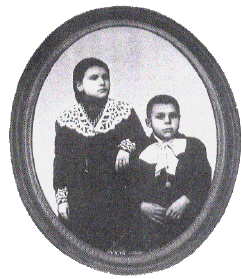
PROSE WRITING
Florbela’s prose writing is represented by her short stories, by a diary she kept just before her death, and by her correspondence. Some of her letters were of an intimate nature, others dealt with questions related to her literary production, wondering about its literary quality, or wondering about more pratical matters, such as publication. In the contents of her correspondence, we see certain qualities that are not always present in the rest of her prose – naturalness and simplicity.
In her short stories, organized in two volumes, Dominу Preto (The Black Domino) and As Mбscaras do Destino (The Masks of Destiny), quite often we can sense a certain autobiographical and intimate content.
In А margem de um soneto (On the Edge of a Sonnet), her intention seems to be to paint a different picture of the characters in which she sees herself mirrored, since they are contradictory and provoking for the times.
In another short story, Amor de outrora (A Past Love), the reader can detect the reminiscing of events in her life, her mistakes and disappointments in love, from the first to the third marriages. This interpretation is strengthened by several letters addressed to her husbands and to lovers whom she apparently wishes to get rid of, as well as to her father, in which she tries to justify some of these situations.
In Crime do Pinhal (Murder in the Pine Grove), two mothers who love the same child stand by the “avengers” who murdered the child’s seducer. Could these be her stepmothers who showed such great and simultaneous affection for Florbela and to whom she is now expressing her gratitude?
And at the beginning of As Mбscaras do Destino (The Masks of Destiny), we find a dedication to Apeles, her “Deceased,” for whom, once again, she has words of great joy and praise as well as pain, which she complements with O Aviador (The Flier), where she gives a mythical interpretation of the death of her beloved brother.
Throughout her short stories, one finds phrases of great beauty and strength, such as in the expressions of desire, loaded with eroticism, attributed to the main character of The Flier and which, somehow, express her own contradictions as she makes her transition toward women’s liberation. We cannot, however, overlook the fact that sometimes they lack a certain density of structure or content. There is an overabundance of words and images which add little or nothing to what she intends to say and which, as noted by Y. Centeno, contribute very little to a “profound analysis of her sentiments and passions.” And, as also noted by Centeno, Florbela is consistent in qualifying women as being pure or impure, excellent people or shrews.
Her letters were not intended to be literary creations and, perhaps for that reason plus the fact that she dwells on actual events, they present a less embellished and artificial picture of her life. They allow us to know her better as they mirror the conditions of her soul and bring us closer to her real human condition more than what we find in her formal prose and even in some of her poetic moments.
Among her letters, the ones that stand out are those addressed to her friend Jъlia Alves, whom she never meets personally but with whom she exchanges personal impressions on the most varied subjects and to whom she opens up her soul, as the friendship becomes more intense. In one of them she says: “I’m so much in need of being lulled to sleep, slowly…softly…like a little child, dreaming, in a warm and tender lap!…” Perhaps this will help us to better understand her life as well as her death.
In another letter, this one written after her first marriage, she declares, and later both repeats and denies it: “one of the best things in life…is love, that great and much talked about love…”, and then adds “however, marriage is a cruel state, as is the state of being owned…”
She writes to her friend with surprising frequency. On several days in a row. In one day, she writes three letters. In what supposedly is the last letter, not as warm as the ones that preceded it and sent slightly less than a year after the first one, she thanks her friend and declares that she will never forget her feeling of being understood and esteemed.
In correspondence addressed to other people she demonstrates her sadness for all the difficulties she has had to face to publish her books.
Writing to writer Raul Proenзa, she indicates her discouragement due his declarations about her poems, and encloses new sonnets asking him for his opinion of them. Eventually, he will make the arrangements for the publication of her book Livro de Mбgoas (The Book of Sorrows).
Florbela translates two books (and possibly more), one being Pierre Benoit’s Mademoiselle de la Fertй, which becomes required reading for all teenagers in the years following her death, and Dois Noivados (Two Betrothals), by Clambol, both published by Liv. Civilizaзгo, of Oporto. She signs the translations as Florbela Espanca Lage. Previously, on several occasions, she had used Florbela Moutinho, using her first husband’s last name.
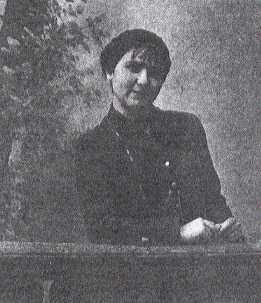
THE FINAL DAYS
During the last year of her life she writes a Diary, in which she writes comments right up to a few days before her tragic end. It is a preface to her demise.
She begins by saying that she has no particular purpose in writing it. But a little later she hopes that “when I die it’s possible that someone” upon reading it “do so with a little compassion and understanding” of what she had been or thought she had been. “And be able to do what I couldn’t: to know me.”
She describes herself as “sincere without prejudices, loving without lust, chaste without formalities, correct without principles, and always alive,” all of which leads to some of the questions that have come up…
She recalls the names of former companions and describes once again the love she had for her brother, Apeles, the pilot whose death in a plane crash makes her feel so much more lonely. She says that she doesn’t understand the fear felt by the young author of another Diary, from which she excerpts a few sentences.
She examines her face in a mirror and finds herself as “vulgar and hideous-looking, grotesque and a wretch,” and doubts whether she can make poetry. And once again, she makes us consider the contradictions that permanently torture her and which she expresses in one single sentence: “To live is not to realize that you are living.”
Her annotations become rarer and shorter as she nears the end.
She states that the love letters she had written were only the result of her need to make phrases. And, in complete contradiction of what she had said only a couple of pages before, she writes “…if other people don’t know me, I know myself.”
A few days before her death, she wonders: “…how important is what lies hereafter?” And she answers her own question by repeating the words from her sonnet To a Dying Man: “Whatever it is, it will be better than this world and this life.”
Her death, which had been announced throughout her writings, occurs shortly thereafter. She ends her life on December 8, 1930, exactly on the day she turns thirty-six, in the town of Matosinhos, where she is living. She is buried there, but her remains are later removed to her birthplace.
Florbela might not have been the greatest poetess of her time, but she was one who most sharply and fearlessly expressed the great contradictions in the sensitiveness of a woman and her passions. And she does it with a certain innocence, impregnated with simple and complex truths about what it is to be a woman in the confluence of cultural mores and the act of simply being.
What leads Florbela to her death?
The answer is given by Fernanda de Castro, as quoted by Carlos Sombrio: “Because she was never able to bring into harmony her body, her spirit and her soul.”
The newspapers hardly notice her death. They will do it later.
Through the efforts of professor Guido Batelli, as we mentioned before, her two books of poems, Charneca em Flor (The Flowering Heath) and Reliquiae (Relics), are published posthumously, as are her books of short stories Dominу Preto (Black Domino) and As Mбscara do Destino (The Mask of Destiny) and the the poem Juvenilia.
This is only the beginning of a succession of republications which, particularly regarding her poems, in some cases have reached thirty-six, or perhaps more, if we consider the scattering of publishing houses.
In addition, there are the translations made by Guido Batelli, as well as a few others into languages other than Italian.
